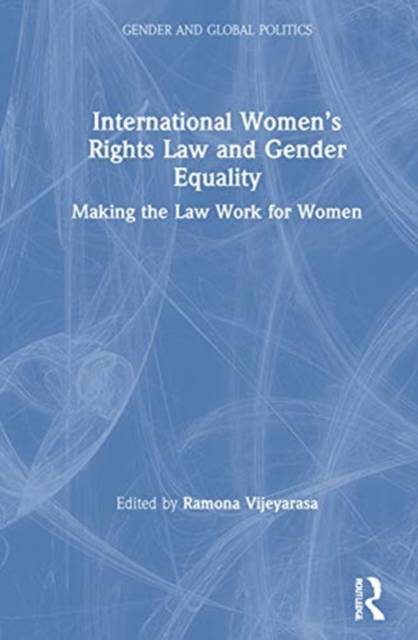
- Afhalen na 1 uur in een winkel met voorraad
- Gratis thuislevering in België vanaf € 30
- Ruim aanbod met 7 miljoen producten
- Afhalen na 1 uur in een winkel met voorraad
- Gratis thuislevering in België vanaf € 30
- Ruim aanbod met 7 miljoen producten
International Women's Rights Law and Gender Equality
Making the Law Work for Women
Omschrijving
The law is a well-known tool in fighting gender inequality, but which laws actually advance women's rights? This book unpacks the complex nuances behind gender-responsive domestic legislation, from several of the world's leading experts on gender equality.
Drawing on domestic examples and international law, it provides a primer of theory alongside tangible and practical solutions to fulfil the promise of the law to deliver equality between men and women. Part I outlines what progress has been made to date on eradicating gender inequality, and insights into the law's potential as one lever in the global struggle for equality. Parts II and III go on to explore concrete areas of law, with case studies from multiple jurisdictions that examine how well domestic legislation is working for women. The authors bring their critical lens to areas of law often considered from a gender perspective - gender-based violence, women's reproductive health, labour and gender equality quotas - while bringing much-needed analysis to issues often ignored in gender debates, such as taxation, environmental justice and good governance. Part IV seeks to move from a theoretical goal of greater accountability to a practical one. It explores both accountability for international women's rights norms at the domestic level and the potential of feminist approaches to legislation to deliver laws that work for women.
Written for students, academics, legislators and policymakers engaged in international women's rights law, gender equality, government accountability and feminist legal theory, this book has tremendous transformative potential to drive forward legal change towards the eradication of gender inequality.
Specificaties
Betrokkenen
- Uitgeverij:
Inhoud
- Aantal bladzijden:
- 260
- Taal:
- Engels
- Reeks:
Eigenschappen
- Productcode (EAN):
- 9780367549428
- Verschijningsdatum:
- 23/07/2021
- Uitvoering:
- Hardcover
- Formaat:
- Genaaid
- Afmetingen:
- 156 mm x 233 mm
- Gewicht:
- 561 g

Alleen bij Standaard Boekhandel
Beoordelingen
We publiceren alleen reviews die voldoen aan de voorwaarden voor reviews. Bekijk onze voorwaarden voor reviews.










